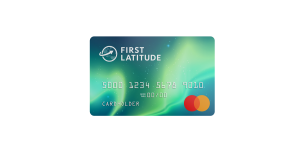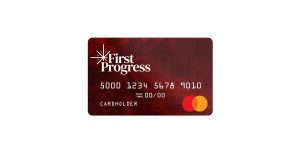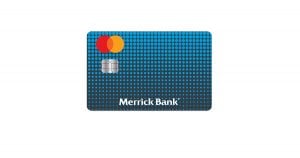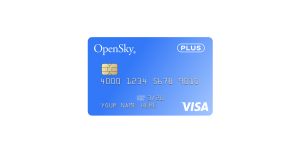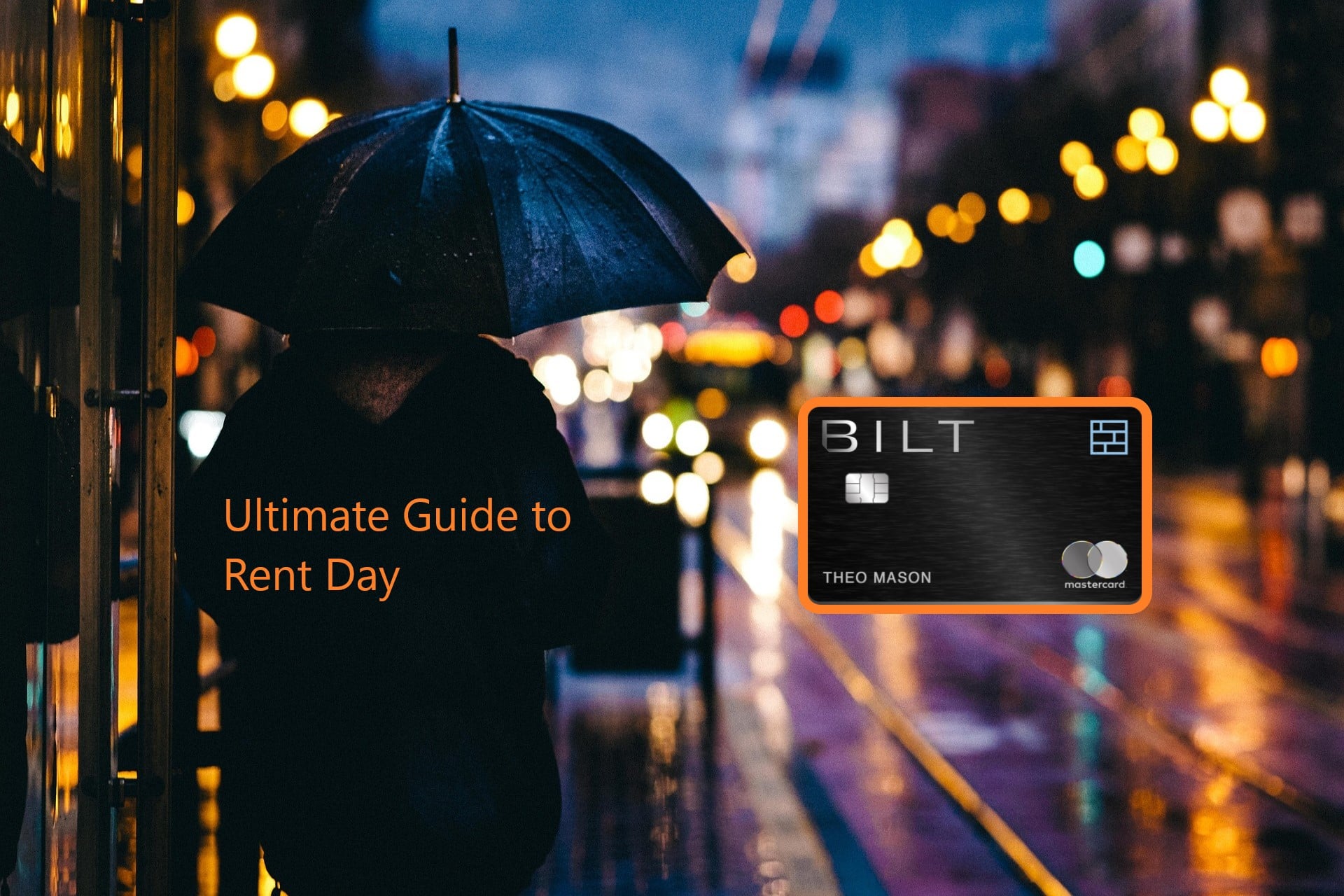Last updated on October 5th, 2023
If you’re here to learn everything there is to know about secured credit cards, you have come to the right place. Let’s break down the ins and outs of secured credit cards. In this ultimate guide to secured credit cards, we will define what it means to have one and how it works. We cover everything from its benefits and drawbacks to whether or not you should get one and why.
Table of Contents
At a Glance
- Secured credit cards are an excellent alternative to traditional credit cards for anyone who struggles with no credit or a subprime credit score.
- If you opt to go for a secured credit card stay educated on its requirements like security deposits and common fees.
- Secured cards share similarities with other types of credit cards and there are also alternative credit cards to secured cards for anyone who wants to improve their credit.
- Raise your credit score with a secured credit card through responsible use and with a goal in mind like graduating to an unsecured credit card.
What Is A Secured Credit Card?
A secured credit card is a type of credit card that requires a deposit to serve as a credit line. The deposit secures or ensures your repayment. As a result, the bank or credit card lender knows it will get paid. Therefore, your deposit determines how much you can spend. However, some issuers may set limits on your credit line based on a percentage of the deposit, typically between 50 to 100 percent.
Do secured credit cards build credit? The answer is yes. Seeking a credit builder card can be challenging when you have no credit or subprime credit. Secured cards can help you fulfill the steps in your credit journey. Furthermore, it is common to encounter secured cards with annual fees, although there are options without.
Secured Credit Cards vs. Traditional Credit Cards
| A security deposit is required for secured cards | Interest rates and fees are typically lower for unsecured credit cards |
| Secured credit cards usually do not conduct credit checks during application review processes. | Unsecured credit cards traditionally have higher credit limits. |
How are secured credit cards different from unsecured credit cards? For starters, traditional cards never require a deposit. The collateral requirement is the main difference between secured and unsecured credit cards. Additionally, unsecured cards have lower rates, lower fees, and higher credit limits when compared to secured cards.
Also, it is not typical for secured credit cards to offer ways to earn rewards, but there are a few that do, usually accompanied by a modest annual fee. In contrast, in the world of unsecured credit cards, you will find numerous card options that offer rewards and no annual fee.
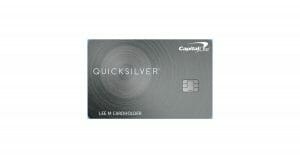 |
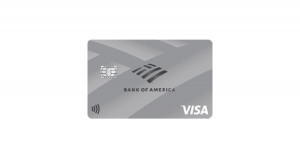 |
| Capital One Quicksilver Secured Cash Rewards Credit Card | Bank of America® Unlimited Cash Rewards Secured Credit Card |
| Earn unlimited 5% cash back on hotels and rental cars booked through Capital One Travel | Unlimited 1.5% cash back on all purchases |
| Earn unlimited 1.5% cash back on every other purchase |
While there are a few unsecured credit cards for bad credit, most require a minimum, a fair credit score or better. On the other hand, approval for a secured card can require little to no credit. Applicants for unsecured credit cards should also be aware that applying for a new card will usually result in a hard inquiry on their credit report. Whereas, secured credit cards typically perform soft pulls on an applicant’s credit history.
Hard inquiries a.k.a. hard pulls, affect your credit scores. They occur when lenders and card issuers check an applicant’s credit report when making underwriting decisions. Each hard pull knocks off a few points on your credit score and may take up to two years to roll off a credit report.
On the contrary, most secured credit card applicants won’t experience a hard inquiry. Instead, applicants may notice a soft inquiry, or soft pull and no impact to their credit scores. Soft inquiries show lenders limited credit report information, used to make special promotional offers or used for application screenings.
Similarities Between Secured and Prepaid Cards
Secured and prepaid cards share a similar concept. Both require a deposit to act as your source of cash, except that for prepaid card’s it’s called reloading funds. Prepaid cards can usually be reloaded at participating retail stores or through a linked checking account. Prepaid cards also don’t require credit checks and they have an easy application process. Most financial institutions have a form of prepaid card products. Similar to unsecured credit cards, there are co-branded prepaid cards too like the PayPal Prepaid Mastercard®.
There are also similarities between secured credit cards and debit cards. Debit cards of course, do not require credit checks and can be found via financial institutions or co-branded affiliations. A good example is the Walmart MoneyCard®. It’s a debit card provided by Walmart. It earns up to 3% cash back on purchases made at Walmart.com, Walmart stores, and gas stations (up to $75 per year). The Walmart debit card also features overdraft protection and new account promotional offers. Similar to secured cards, debit cards also require a deposit to function.
| Prepaid Card | Debit Card |
|---|---|
| Preloaded with funds | Connected to checking account |
| Must be reloaded | Funds replenish with direct deposits |
| No overdraft | Overdraft available |
What Fees Can You Expect for Secured Credit Cards?
We briefly mention that secured credit cards may have annual fees and higher rates when compared to unsecured credit cards. Interest rates are typically higher for secured credit cards because issuers run a high risk lending to a cardholder with poor credit. Consequently, many secured cards might have an annual fee – usually a fairly modest one. Some secured card issuers may break up the annual fee into smaller, more manageable monthly payments. And there are few secured credit cards that feature no annual fee at all with the possibility of a credit line increase in as little as 6 months without an additional deposit.
| OpenSky® Plus Secured Visa® | Capital One Platinum Secured | Citi® Secured Mastercard® | |
|---|---|---|---|
| Annual fee | $0 | $0 | $0 |
| Deposit required | $300 to $3,000 | $49, $99 or $200 | $200 to $2,500 |
| Credit limit increases | Yes, in as little as 6 months | Yes, in as little as 6 months | Yes |
| Credit reporting | Experian, Equifax, TransUnion | Experian, Equifax, TransUnion | Experian, Equifax, TransUnion |
How much can a secured credit card raise your credit score?
The health of a credit score varies from person to person. For this reason, there is no exact timeline for how much your credit score will improve by using a secured credit card. However, with responsible use of your card, you may begin to see improvement in as little as one to six months. Remember, Rome was not built in a day, and neither is your credit score. Although you may see an improved score in a few months, it can take years to build up to a consistently good or excellent credit score. Let’s be honest, secured credit cards work best as a stepping stone to better credit.
The goal should be to graduate to an unsecured credit card for higher credit limits and better rates. A high credit limit is extremely beneficial to the health of your credit score because it factors into your credit utilization ratio, which determine 35% your score. There are secured credit cards that can help graduate you to an unsecured card in as little as six months. See below.
The Benefits of Secured Credit Cards
Some of the benefits of a secured credit card have been sprinkled throughout this article. Furthermore, we have gathered a few other secured cardholder advantages.
| Access to Credit | No Risk to Lenders | Graduation to Unsecured Cards |
| Learning Financial Responsibility | Convenience and Usability | Fraud Protection |
| Rental Car and Hotel Bookings (entities may require a credit card for service) | Establishing Relationships with Creditors | Worldwide Acceptance |
Access to credit: It can be difficult to access credit if you have no credit history or, when you have a subprime credit score. Secured credit cards create an opportunity for anyone who might find themselves in such credit situations. As long as you save up enough for a minimum deposit, you can be on your way to building credit while staying within your means.
No risk to lenders: The safety of the deposit as collateral will be sure to sweeten card issuers and their underwriters during your application review. The deposit helps card issuers and banks see you as less of a risk when opting to grant you a line of credit.
Graduation to unsecured cards: The ultimate goal when using a secured card is to build enough credit to qualify for an unsecured credit card. Unsecured cards usually have higher credit limits, better rates and rewards, and extra benefits. Expanding your credit limit will only help lower your credit utilization if used responsibly. A higher credit limit can also help you manage payments for larger purchases, from car down payments, to home renovations or an unplanned trip to the mechanic. When you graduate to an unsecured card, it opens the door to explore other types of credit cards like travel credit cards, business credit cards, and more.
Rental car and hotel bookings: In today’s modern world, you may need to have a credit card on hand to acquire special services. For example, when renting a car, the service provider typically requires a credit card to hold for your rental. Booking hotel stays sometimes is the same way too. That’s where a secured card comes in handy. Not to mention, it is better than carrying around loads of cash that can easily get lost or damaged or may be too bulky to store.
Fraud protection: Credit cards in general come with certain protections that will help shield you from credit fraud. You can keep peace of mind whenever you use your secured credit card at your favorite retail stores, online, or when running your weekly errands like grocery shopping or fueling your car.
Establishing relationships with creditors: Whichever secured credit card you opt for will help you establish a relationship with creditors, which can prepare you for other credit opportunities like mortgage loans, car loans, insurance, and more.
Acceptance worldwide: Having a credit card on hand when traveling is convenient because it can help pay for emergencies or unexpected purchases. Best of all, a credit card, depending on the payment network, is commonly accepted worldwide and may be your best option if you don’t have foreign currency on hand.
Other Types of Credit Cards
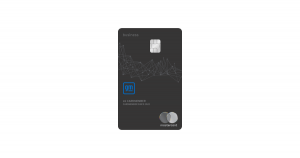 |
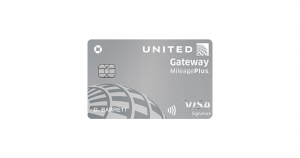 |
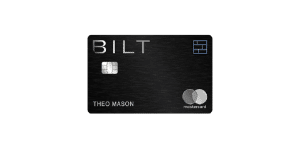 |
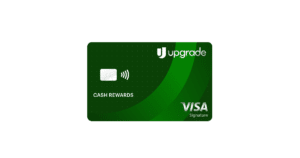 |
| GM Business Card™ | United Gateway Card | Bilt Mastercard | Upgrade Cash Rewards Visa® |
| Auto Rewards Business Credit Card | Travel Credit Card | Rewards Credit Card | Cash Back Credit Card |
| Up to 5% in Earnings on eligible GM dealership purchases, gas, dining, and more | Earn up to 2 miles per $1 spent on United® purchases, gas, commuting, and more | Earn up to 3X points on dining, travel, and rent payments! | Earn 1.5% unlimited cash back on card purchases every time you make a payment |
What are the Drawbacks of a Secured Credit Card?
| Security Deposit | Annual Fees and Other Charges | Limited Rewards and Benefits |
| High-Interest Rates | Limited Credit-Building Opportunities | Risk of Losing the Deposit |
| Difficulty Transitioning to Unsecured Cards | ||
Do All Banks Offer Secured Credit Cards?
Not all banks offer secured credit cards. However, most do. Secured credit cards are also not exclusively issued through banks. There are other financial institutions like major banks, credit unions, online lenders, and local and regional banks. The major banks typically offer a wide range of products, including secured credit cards.
Similarly, credit unions will also offer a range of financial products on a smaller scale, including secured credit cards. The difference between secured cards offered through credit unions, versus a major bank is the rates. Credit unions typically have lower rates because they are member-owned financial institutions. Online lenders may provide specialized secured cards catered to a specific niche, such as credit building like the Self Visa® Credit Card or the Chime credit card a.k.a. Chime Credit Builder Secured Visa® Credit Card. As for local and regional banks, they may offer secured credit cards, although availability depends on locations.
The Best Secured Credit Cards
The best-secured credit cards should help you improve subprime credit or build credit. For this reason, finding a secured credit card with credit checks is essential. Lucky for you, credit checks are not common among secured cards. For example, the OpenSky® Secured Visa® has a low minimum deposit and does not require a credit check to qualify. OpenSky has had an 85% average approval rate for the past five years.
Who Should Get a Secured Credit Card?
If you have excellent credit, you likely don’t have use for a secured credit card. You’re better off applying for an unsecured credit card offering better rates, better rewards, and the best benefits. A secured card is best for anyone with bad credit and needs credit access or for someone who has no credit and is in the process of building credit.
Other Types of Secured Cards
There are other types of secured credit cards for those who struggle with their credit. A good example is secured business credit cards. Sometimes entrepreneurs may need help getting a business credit card if they haven’t established a business credit or they don’t have the best credit score. As a result, it can take time to begin the journey of building business credit. Luckily, there are secured business credit cards like the First Bank Business Edition® Secured Mastercard® or Bank of America’s Business Advantage Unlimited Cash Rewards Secured Credit Card.
There are also charge cards, which are not a type of secured credit card but have a similar feel to them because you must pay that balance back in full at the end of each month. In other words, you must have enough funds in your savings or checking account to pay back the charge card. Secured cards are different because you must give a deposit upfront, which will be used as your credit limit. For instance, the Ramp Card is a corporate charge card that provides businesses with the purchasing power they may need.
Other Secured Credit Card Alternatives
A secured credit card might not be right for you. The good news is that there are alternatives. Consider a credit builder debit card or an unsecured card for bad credit, maybe even a catalog card. Whatever card tool you choose, take careful consideration of the following factors:
- Does the card fit your lifestyle?
- Will you be able to manage a new card responsibly?
- Can you afford a deposit if you go the secured credit card route?
- What is the health of your credit score?
- Have you educated yourself enough about credit and how it works?
How To Build Credit
It is super important to stay educated on how credit works and where your credit stands. Here are a few tips that can help you stay on your toes when it comes to building credit.
| 1. Check your credit report regularly |
| 2. Never miss a credit card payment |
| 3. Pay your bills on time |
| 4. Be mindful of your credit utilization ratio |
| 5. Limit credit card and loan applications |
How Can You Close a Secured Card Account?
If you have had a secured credit card for a couple of years, your credit is looking healthier, and you have graduated to an unsecured card, you may consider closing the account. Keep in mind, that closing a credit card account will lower your credit limit which affects your credit utilization ratio. As a result, you may see a dip in your credit score.
However, if you continue responsible use of your unsecured credit card and eventually apply and qualify for others, you can expand your credit limit. Also, consider that your secured credit card might have a smaller credit limit anyway. So, closing the account may not affect your credit score significantly. Especially, if your new unsecured card has a much higher credit limit.
With that said, let’s go through the steps on how to close out your secured credit card account.
Step 1: Pay off your card balance before closing it out. Otherwise, an outstanding balance will prevent the account from closing.
Step 2: Contact the card issuer and request the account closure. You can typically reach out by phone or through the issuer app. Don’t forget to confirm that your account balance is at $0 and that all accrued interest is paid and up to date.
Step 3: Make sure to verify your deposit refund with the card issuer. Clarify the process and timeline to ensure you’re in the know on what to look out for.
Step 4: Verify the account closure by checking your credit report to ensure it has been reported.
Step 5: Once the account is confirmed closed, you can destroy the card by cutting it and continue to monitor your credit for any persisting issues.
Should You Get a Secured Credit Card?
The bottom line is that you should only get a secured credit card if you are in the infancy of your credit journey or if you have subprime credit and have a hard time qualifying for an unsecured card. Secured cards can be used as a stepping stone to better credit by using them as a financial tool and not as a means to spend your credit on non-essentials. With a secured card, you can set a manageable credit limit and learn to budget and build credit responsibly.
Editorial Disclosure – The opinions expressed on BestCards.com's reviews, articles, and all other content on or relating to the website are solely those of the content’s author(s). These opinions do not reflect those of any card issuer or financial institution, and editorial content on our site has not been reviewed or approved by these entities unless noted otherwise. Further, BestCards.com lists credit card offers that are frequently updated with information believed to be accurate to the best of our team's knowledge. However, please review the information provided directly by the credit card issuer or related financial institution for full details.

